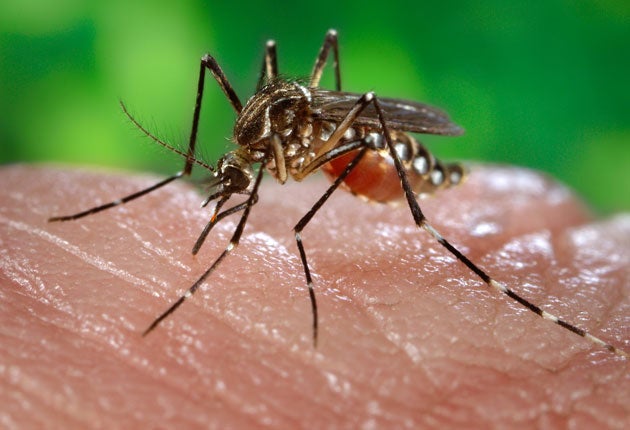Red tape halts mosquito wonder spray
Costs could prevent new repellent more effective than Deet reaching market

A new class of powerful insect repellents that work for up to three times longer than the best existing mosquito repellent has been developed, but may never be commercially produced because of the costly and time-consuming approval process.
The chemicals have been mastered in the laboratory, and rudimentary tests show that they are more effective than Deet, the "gold standard" insect repellent used to protect people against bites and one of the main defences against malaria, which kills an estimated million people each year worldwide.
"Commercial availability of topical repellents can take years and it is a significant investment to achieve that end goal," said Ulrich Bernier, a researcher at the US Department of Agriculture in Gainesville, Florida, who presented the scientific details of the repellents to the national meeting of American Chemical Society in Washington.
"The cost will be several hundred thousand dollars. Once you determine that the repellent works through some screening process, we then have to go through a toxicological hazard evaluation involving numerous toxicological tests. Clearly, the odds are stacked against new repellent products making it to market."
The repellents were discovered by screening the molecular structures of more than 30,000 chemical compounds tested as insect repellents over the past 60 years. Using 11 known compounds, they synthesised 23 new ones, and 10 of these gave about 40 days' protection compared to Deet's 17.5 days when soaked into a cloth worn by volunteers.
Dr Bernier said the work was not the result of simple trial and error but conducted with sophisticated computer programs that could analyse the molecular structure of known repellents to see whether new ones could be synthesised in the laboratory.
The scientists went through the archives of insect repellents dating back six decades. For instance, they checked out 2,000 variants of a compound found in black pepper, which is known for its insect-repellent properties, to see what would work best.
Mosquito repellents must work against female mosquitoes, which have to take blood meals to produce their eggs. The malaria parasite, or plasmodium, infects the mosquito when the insect feeds on an infected host. But the mosquito itself does not become infectious until the plasmodium migrates from the insect's gut to its salivary glands.
Join our commenting forum
Join thought-provoking conversations, follow other Independent readers and see their replies
Comments
Bookmark popover
Removed from bookmarks